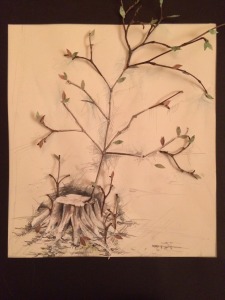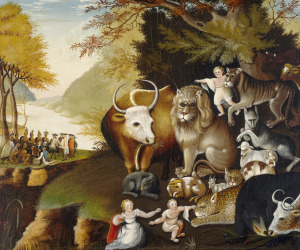Readings: Psalm 80:1-7, Isaiah 42: 10-18, Hebrews 10: 32-39
I will lead the blind by a road they do not know, by paths they have not known I will guide them. I will turn the darkness before them into light, the rough places into level ground. These things I will do, and I will not forsake them. Isaiah 42:16
There’s a difference between being lost and exploring a new place without a clear idea of my current position. I’ve been both in Boston. If I stray off the ever popular Freedom Trail, with its line of bricks to guide me, I end up who knows where. With a bit of faith and luck, I’ve ended up eating a delicious meal in the North End, finding the Museum of Fine Arts by way of the Fens, and standing in Cambridge and Boston at the same time in the Museum of Science. I’ve also ended up on dead end streets lined with dumpsters, the Charles River Esplanade in plain sight and no way to get to it. Lost or exploring new territory? For me, the difference is mainly emotional. Lost feels anxious and not quite safe; exploring feels exciting and confident.
But what if I walk in blindness? How would I know where I stood? How could I tell someone else how to find me? If my eyes cannot see, an unknown pathway means I am lost. Would I have the courage to walk such a path in the dark? Staying put or walking, I am afraid if I am alone.
The same could be said for this journey that is my life. In times of blindness, I am afraid to walk and afraid to say put if I am alone. But I am not alone. I have a guide who loves me and brings me home. Not only that, this guide turns my blindness into light. No longer blind, held fast, brought home.
Guide me, Lord, in life and in life beyond death. Amen.
Come, Lord Jesus, Come.


